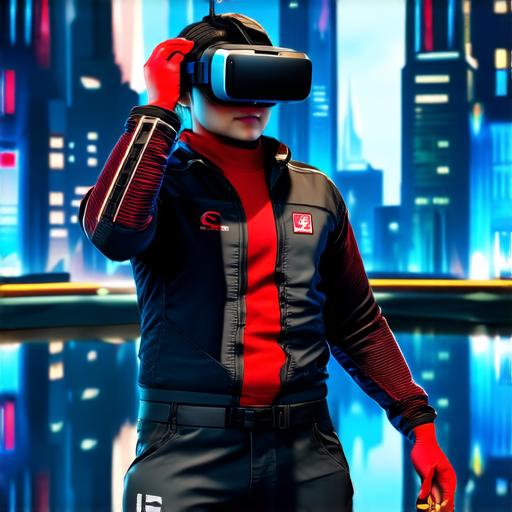Virtual reality (VR) is an emerging technology that has gained popularity in recent years due to its ability to create immersive experiences for users.
1. Technical Skills
Technical skills are essential for any VR developer. You need to have a strong foundation in programming, mathematics, and physics to create VR experiences that are both functional and immersive. Some of the technical skills needed to become a VR developer include:
-
a) Programming Languages
-
You will need to be proficient in at least one programming language such as C++, Unity, or Unreal Engine. You should also have experience with game engines like Unity and Unreal Engine that are specifically designed for VR development. Knowing how to code in multiple languages increases your versatility as a developer and makes you more valuable to potential employers.
-
b) Math and Physics
-
You will need to have a solid understanding of mathematics and physics to create realistic and immersive VR experiences. This includes concepts such as linear algebra, calculus, and physics engines like Havok or Bullet. You should be comfortable working with these mathematical and physical concepts to ensure that your VR experiences are both accurate and engaging.
-
c) 3D Modeling and Texturing
-
You will need to be proficient in 3D modeling and texturing software such as Blender or Maya to create the assets that make up your VR experiences. This includes creating models, textures, and animations that are optimized for VR environments. You should also have experience with texture mapping techniques, lighting, and shadow effects that enhance the realism of your VR experiences.
2. Soft Skills
Soft skills are just as important as technical skills when it comes to becoming a successful VR developer. Some of the soft skills needed to become a VR developer include:
-
a) Creativity and Innovation
-
You will need to be creative and innovative to come up with new and exciting ideas for VR experiences. This includes thinking outside the box, experimenting with new technologies, and constantly pushing the boundaries of what is possible in VR. You should also have the ability to brainstorm and conceptualize ideas that align with your client’s vision and goals.
-
b) Communication Skills
-
You will need to be an effective communicator to work with other developers, designers, and stakeholders. This includes being able to explain complex technical concepts in simple terms, collaborate effectively with others, and present your ideas clearly and concisely. You should also have experience working with cross-functional teams and be comfortable providing feedback to team members.
-
c) Time Management and Organization
-
You will need to be organized and manage your time effectively to meet deadlines and deliver high-quality work. This includes setting priorities, creating timelines, and being able to work under pressure. You should also have experience managing project timelines and milestones to ensure that your VR projects are completed on schedule.
3. Case Studies and Personal Experiences
Case studies and personal experiences can provide valuable insights into the skills and qualities needed to become a successful VR developer. Some examples include:
-
a) Virtual Reality Development for Healthcare
-
Virtual reality is being used in healthcare to treat a wide range of conditions, including anxiety, PTSD, and chronic pain. A successful VR developer for healthcare will need to have experience with medical terminology, anatomy, and physiology, as well as the ability to create immersive experiences that are both engaging and therapeutic. You should also have knowledge of HIPAA regulations and ethical considerations in healthcare technology development.
-
b) Virtual Reality Development for Education
-
Virtual reality is being used in education to enhance the learning experience by providing immersive, interactive environments that simulate real-world scenarios. A successful VR developer for education will need to have experience with educational theory and pedagogy, as well as the ability to create engaging and effective experiences that promote learning and retention. You should also have knowledge of learning management systems (LMS) and be able to integrate your VR experiences into existing educational platforms.
-
c) Virtual Reality Development for Gaming
-
Virtual reality is revolutionizing the gaming industry by providing immersive experiences that allow players to feel like they are a part of the game world. A successful VR developer for gaming will need to have experience with game design and development, as well as the ability to create engaging and immersive experiences that align with the target audience’s preferences. You should also have knowledge of gaming platforms such as Steam or PlayStation and be able to publish your VR games on these platforms.

In conclusion, becoming a successful VR developer requires a combination of technical skills and soft skills. Technical skills include programming languages, math and physics, and 3D modeling and texturing. Soft skills include creativity and innovation, communication skills, and time management and organization. Case studies and personal experiences provide insights into the specific skills and qualities needed for different types of VR development projects in healthcare, education, and gaming. With dedication, hard work, and a passion for innovation, you can achieve your dream of becoming a successful VR developer.
